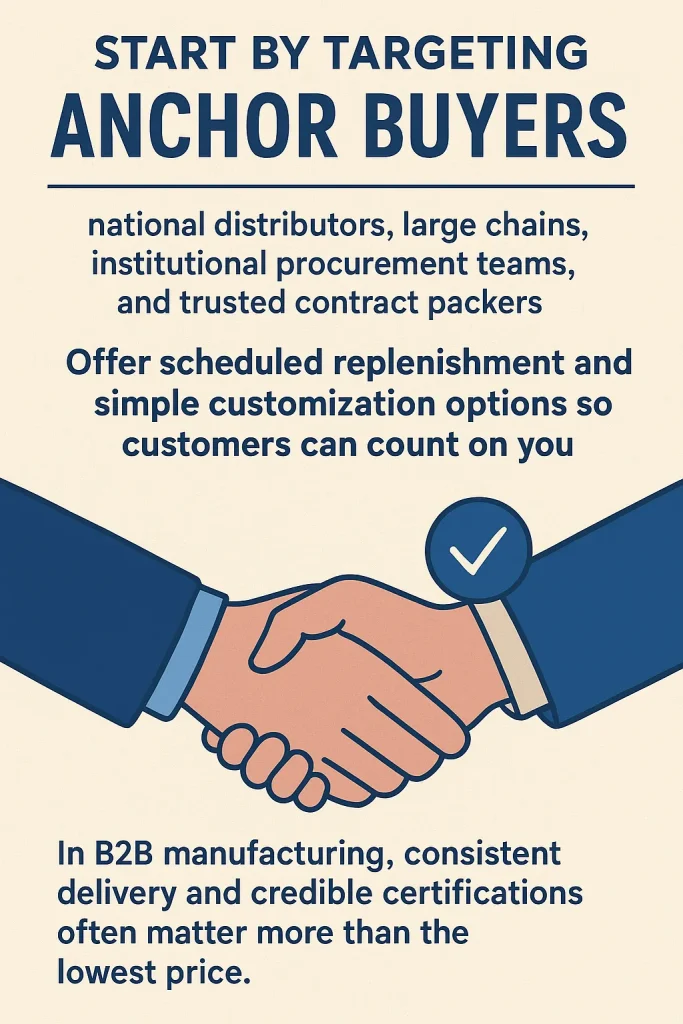If you want a business that grows steadily and weathers market ups and downs, manufacturing in the right industry still delivers dependable, scalable returns. Below, I walk you through nine manufacturing and industrial sectors that make excellent choices for entrepreneurs. For each sector, I explain why it matters now, what the near-term outlook looks like, and how a typical manufacturing process flows. Think of this as a practical primer to help you spot a fit quickly and confidently.
How I chose these nine industries
I picked sectors that rely on real, ongoing needs rather than fads. These are areas where customers come back again and again, where contracts and repeat orders matter, and where good process and consistent quality create a real advantage. In other words, I looked for places where doing the basics well — delivering on time and meeting specs — turns into a durable business.
Sustainable and compostable tableware
Compostable tableware sits at the crossroads of convenience and responsibility. People still want easy, single-use options for food service, but they increasingly expect those options not to linger in the environment for decades.
That creates steady demand from restaurants, caterers, and food-delivery services, while bans on certain plastics push procurement teams toward compostable alternatives. If you make plates, cups, bowls, or cutlery from bagasse, molded fiber, bamboo,o or PLA, you can tap a broad base of institutional buyers and retail customers.
Manufacturing typically starts with clear product specs and consistent raw materials, moves through forming or thermoforming, and on to finishing, printing, and quality testing. When you embed quality checks at every stage and show credible compostability certifications, buyers are more likely to reorder and stick with you.
For more information visit our project reports
Sustainable packaging: paper, flexible, and coated board
Nearly every product needs packaging, and buyers now want packaging that is recyclable, compostable, or made with recycled content. That shift gives manufacturers who can convert and finish corrugated board, flexible pouches, or coated board a steady runway of orders.
A packaging line sources pulp or film, converts material through processes like corrugation and lamination, prints and applies barrier layers where needed, and then inspects and kits products for delivery. Companies win by integrating custom printing and logistics services that make life easier for FMCG brands and e-commerce sellers.
For such information, visit our books
Wood plastic composites and engineered building components
Builders and homeowners increasingly prefer low-maintenance materials that look good and last longer than wood. Wood plastic composites, decking, fencing, and extruded profiles answer that need.
Manufacturing mixes polymer resin with wood fiber or recycled plastic, extrudes or molds profiles, and then finishes and tests the parts for strength and moisture resistance. Local sources of wood residue and recycled plastics make this business particularly practical in many regions, and adding finishing options gives you room to command better margins.
Specialty fertilizers and agro-inputs
Farmers use inputs season after season, which makes specialty fertilizers and agro-inputs a classic repeat business. Micronutrients, controlled-release fertilizers, and water-soluble products fit especially well in markets where farmers are moving toward precision farming. Production focuses on careful batching and blending, granulation or drying, screening and coating, and then bagging and distribution.
Strong relationships with distributors and cooperatives drive recurring volumes, and product tweaks (for example, a new coating that slows nutrient release) help you keep customers coming back.
Related articles:- Made in India, Sold to the World: Profitable Export Businesses Ideas
Medical and hygiene disposables
Healthcare facilities need a constant supply of consumables: masks, gowns, drapes, gloves, and more. Procurement there is conservative and documentation-driven, so once you meet regulatory and safety standards, you can win long-term institutional contracts.
Production usually involves sourcing non-woven fabrics or meltblown layers, converting those into finished products, sterilizing where needed, and embedding batch traceability. Companies that invest in quality systems and certifications often find a high barrier to entry for competitors and attract larger buyers.
Solar PV module assembly and balance-of-system components
As countries add renewable capacity, they need locally assembled modules and BOS parts like racking and junction boxes. Module assembly lines take cells or wafers, laminate them into panels, frame them, attach junction boxes, and run electrical tests.
Adding racking or other BOS products broadens your orders and smooths seasonality. Local assembly can capture demand from national projects, commercial rooftops, and installers who prefer shorter lead times and local support.
Recycled plastics and advanced material recovery
The push for circularity means brands want better recycled resin. A recovery and compounding facility collects and sorts plastic, washes and shreds it, and then extrudes and pelletizes high-quality secondary resin.
Adding compounding capabilities lets you tailor properties so your pellets meet industrial specifications. Control the feedstock and invest in good sorting — that’s where you turn low-value scrap into higher-value material that buyers will pay for.
Ready-to-eat and packaged food manufacturing
Changing lifestyles and urban growth keep appetite high for ready meals and convenience food. Contract manufacturing and private-label work are a smart path because they let you run dependable production without building a big consumer brand.
Typical lines source ingredients, cook or process them in a controlled way, package them into trays or pouches, and then test for shelf life and safety. Reliability and food-safety certification win you the steady orders that let plants operate efficiently.
Industrial chemicals and specialty additives
Many manufacturers rely on specialty chemicals, coatings, and additives that feed other factories. These products create sticky B2B relationships: when you supply a stable, well-documented chemical, customers are reluctant to switch.
Production involves careful handling of raw chemicals, blending or reaction under controlled conditions, filtration and finishing, plus rigorous batch testing and safe storage. Custom formulations for OEMs add value and deepen ties with clients.
Cross-cutting manufacturing guidance
Whatever sector you pick, build for repeatability and quality from day one. Write very clear product specifications, secure more than one supplier for key inputs, and set up in-process quality checks so you catch problems early.
Lay out your plant to support parallel runs for high-volume SKUs and flexible cells for custom or small-batch work. Keep thorough batch records and certification documents — many buyers will ask for them before placing large, recurring orders.
Go-to-market and customer focus

Start by targeting anchor buyers: national distributors, large chains, institutional procurement teams, and trusted contract packers. Offer scheduled replenishment and simple customization options so customers can count on you.
In B2B manufacturing, consistent delivery and credible certifications often matter more than the lowest price. Build relationships and then protect them with excellent service.
Risks and mitigation
Manufacturing always involves risk: raw-material swings, regulatory checks, and competition. You manage those risks by diversifying suppliers, getting transparent third-party certifications, maintaining rigorous quality systems, and choosing markets with reliable logistics and waste-processing capacity where relevant.
Where end-of-life matters, partner with local waste managers and educate buyers so your sustainability claims translate into real circular outcomes.
NPCS — practical support for entrepreneurs
Niir Project Consultancy Services (NPCS) prepares Market Survey cum Detailed Techno Economic Feasibility Reports to help entrepreneurs evaluate and plan projects in these manufacturing niches. Their reports include manufacturing process designs, raw material lists, and plant layout recommendations. NPCS helps founders assess the feasibility of setting up new industries or businesses and supports more informed decision-making.
Conclusion
The best manufacturing ideas combine predictable demand with reliable execution. These nine industries offer that mix: ongoing needs, opportunities for repeat business, and room to build advantage through process discipline and quality. Choose a sector that matches your skills and local supply realities, design for quality and traceability, and focus on relationships that keep orders coming. Do that, and you’ll turn a new idea into a durable manufacturing enterprise.
Find best business ideas for yourself using our startup selector tools
Frequently Asked Questions
1. Why should I start a business in manufacturing instead of services or trading?
Manufacturing creates tangible products and long-term assets, offers better control over quality and branding, and often leads to repeat B2B orders — making it easier to scale sustainably compared to many service-based ventures.
2. Which manufacturing industry is the easiest to enter as a first-time entrepreneur?
Sectors such as compostable tableware, recycled plastics, and sustainable packaging tend to be easier entry points because they have simpler production lines, strong regulatory momentum, and growing demand from modern B2B buyers.
3. How important is certification when working with major buyers?
Very important — especially in B2B markets. Certifications around quality, safety, and sustainability help establish credibility and are often mandatory for institutional procurement, retail chains, and export orders.
4. Do I need a technical background to run a manufacturing startup successfully?
While it helps, you can team up with experienced plant managers and process engineers. What matters most is your ability to manage quality, supply chains, customer relationships and regulatory compliance.
5. How quickly do manufacturing businesses usually become profitable?
Profits depend on sector, scale, margins, and operational efficiency. Businesses with high repeat demand and strong B2B contracts tend to hit breakeven faster — especially in evergreen industries where orders flow predictably.







